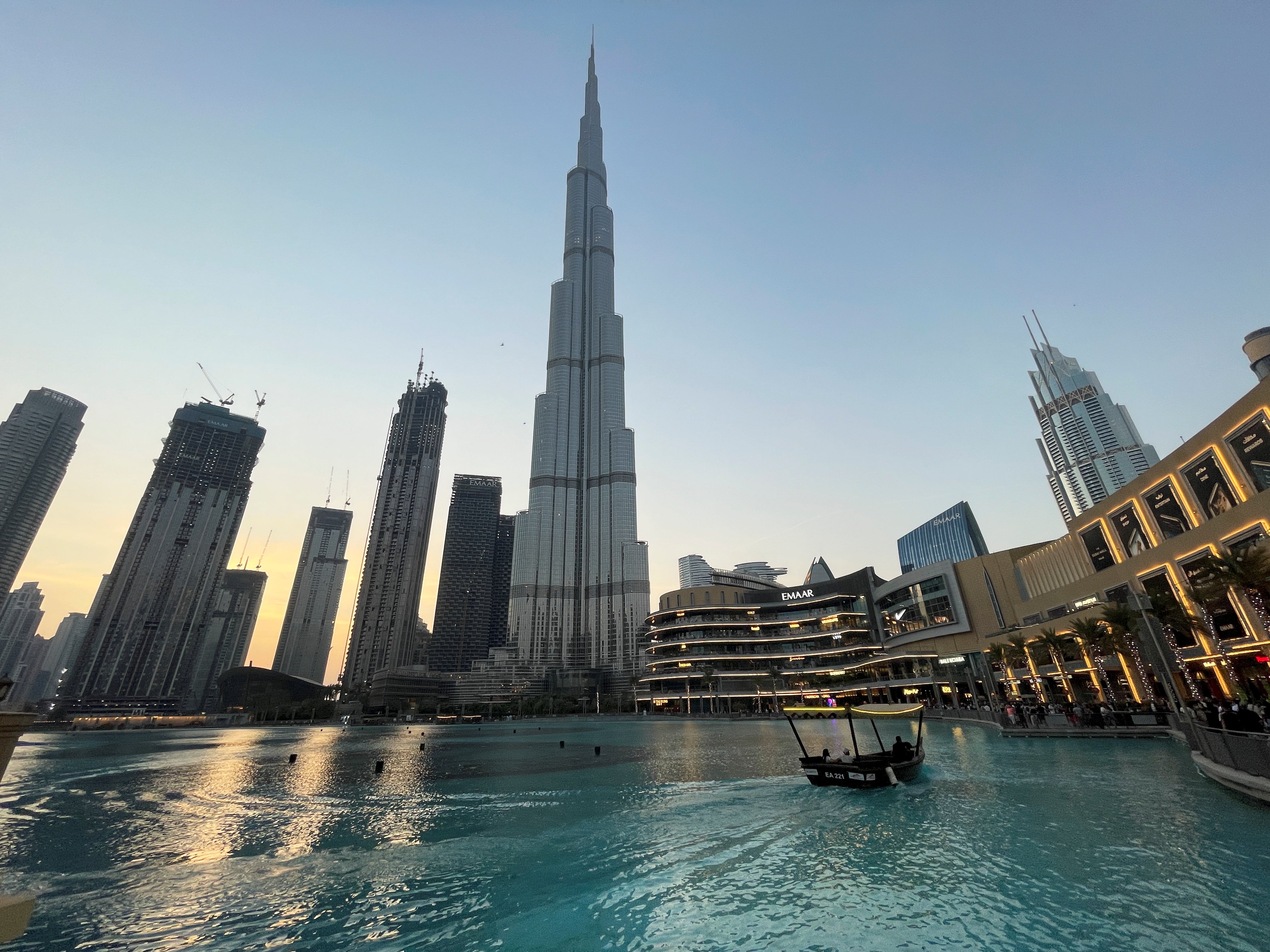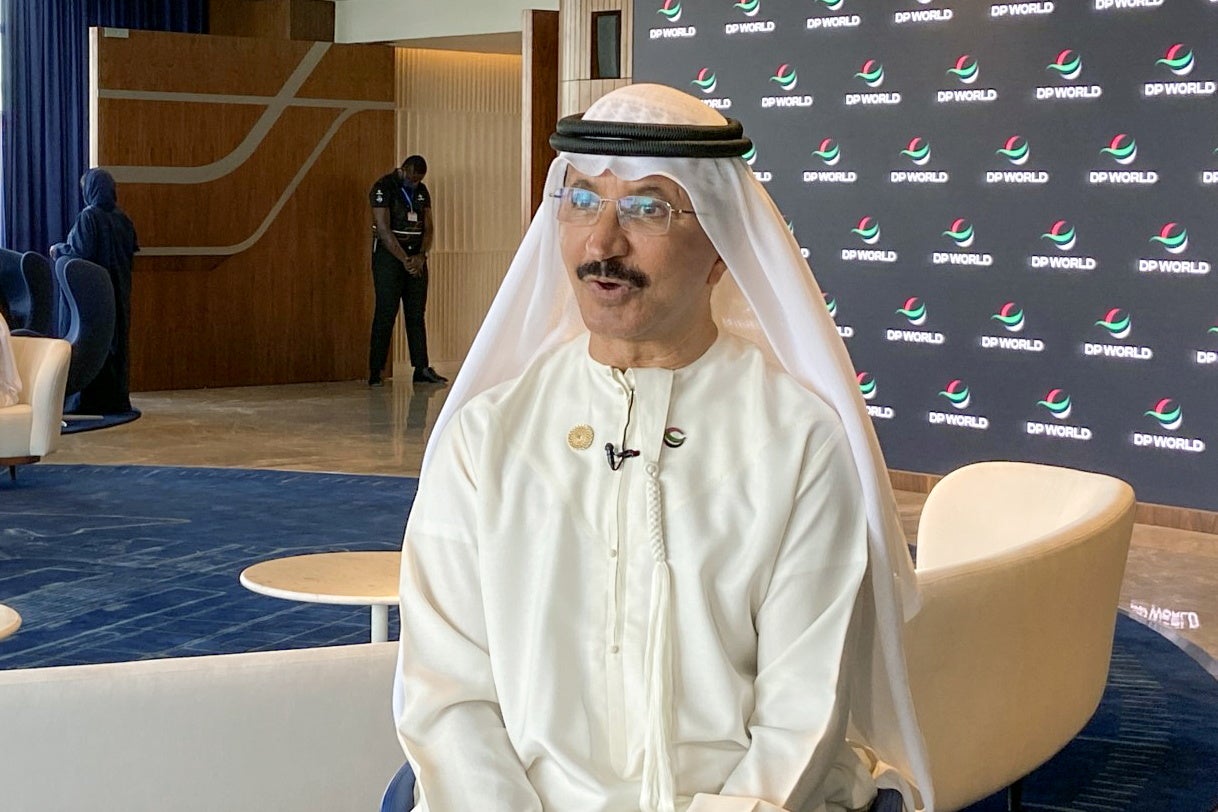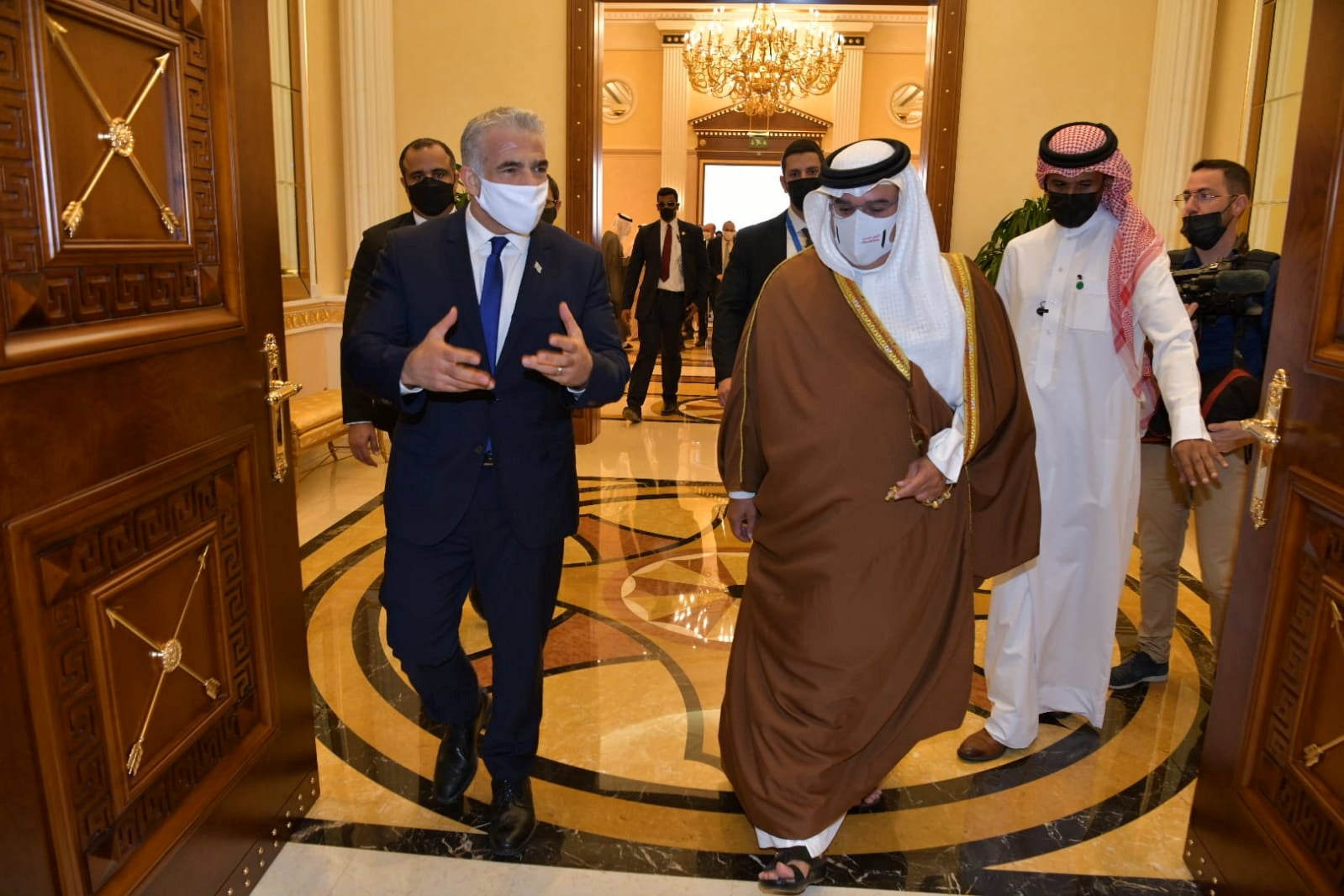How Britain’s post-Brexit trade talks with Gulf nations must weigh investment and human rights
Deals with Gulf nations will not be politically easy, as Anna Isaac explains

Buzzwords such as ‘freeports’ and ‘levelling-up’ are more likely to paint a picture of a down-at-heel dockyard than the bright lights of Dubai.
Yet from Teesside to the Thames, money from the Middle East is helping to bankroll the government’s flagship policies.
The recent launch of the Thames Freeport — ‘Britain’s trading future’ according to the hard back coffee-table brochure dished out to attendees — is a case in point.
Britain’s first post-Brexit freeport was opened last month with a reception at the Savoy Hotel, and Chancellor Rishi Sunak was the picture of relaxed professionalism as he gave a keynote speech even while his political rivals in cabinet were being reshuffled.
Sharing the platform was the chair of major ports and logistics company, DP World, Sultan Ahmed Bin Sulayem. The company invested £300m in extra berth capacity for the project.
“DP World plans to be at the heart of Britain’s trading future and this investment shows that we have the ambition and the resources to boost growth, support businesses, create jobs and improve living standards,” said Bin Sulayem.
More UAE money is being touted via a £10 billion investment in the UK channeled through Mubadala, the Abu Dhabi-based sovereign fund in a package announced last month by Number 10. Overall, the bilateral trading relationship with Gulf states is worth more than £30bn a year according to trade department estimates.

It is against this backdrop — a push to try and garner more investment, depressed by Brexit and pandemic-linked uncertainty — that trade talks are expected to start between Britain and the Gulf Cooperation Council (GCC) in 2022. Last week, the trade department launched a three-month consultation process seeking views from business and civil society.
Colonial-era ties
London is still trying to get a deal with Australia and New Zealand over the line. The aim is to secure these bilaterals on a path to joining the Comprehensive and Progressive Agreement for Trans-Pacific Partnership (CPTPP). Ministers are eager to win partnerships that bring significant investment since the US trade deal — by far the greatest economic prize of Brexit — was put in the deep freeze.
Through its colonial history, Britain has longstanding military and economic ties to the Gulf. The UAE is, historians claim, partly a product of an alliance between so-called Trucial states following Britain’s withdrawal from the region in the 1960s. Trade ties to the area were moulded by its location on shipping routes between the UK and India.
The GCC comprises Bahrain, Kuwait, Oman, Qatar, Saudi Arabia and the UAE. Investment is the key prize to garner from a trade pact, according to officials working on talks, as the external tariff for goods entering the import-heavy block is mostly around five per cent — a fairly low rate by international standards.
But it will not be a politically easy deal. While investments into some parts of the economy, such as freeports, lend themselves to selling the government agenda, others do not.
Human rights abuses
“Before the government goes deeper into this investment relationship with the UAE, we need guarantees that UK finance will not be used to fund projects in the Emirates where there are widespread violations of workers’ rights,” says Emily Thornberry, Labour’s shadow trade secretary.
“We need to know what risks we are running domestically as a result of the power and protection UAE investors are given under the ISDS provisions in this investment agreement.

“After all the events of the past decade with China, we cannot have the government yet again chasing after short-term investment capital without thinking through the long-term implications,” she adds.
There is a range of evidence indicating longstanding human rights abuses in GCC countries. Britain also trades significant amounts of arms with GCC members, and accounts for around one in five of Saudi Arabia’s arms imports, some of which have been used in the conflict in Yemen, according to data gathered by the Stockholm International Peace Research Institute.
The recent purchase of Newcastle United by a Saudi-led investment group is useful example of the thorny issues to come. The £305m purchase, led by a sovereign wealth fund that is ultimately answerable to Crown Prince Mohammed bin Salman, led to accusations from human rights organisations, including Amnesty International, of “sports washing”. The prince was linked to the 2018 murder of journalist Jamal Khashoggi by the US intelligence services. He has always denied any involvement.
On a call last week, the prime minister Boris Johnson and bin Salman “discussed the opportunities for further boosting trade and investment between the UK and Saudi Arabia, ahead of next week’s Global Investment Summit in London,” according to an official readout.
Johnson is trying to warm up a host of potential investors ahead of time. According to a Number 10 insider, it is an economical use of conversations that are presented as focused on green issues ahead of the UN Cop 26 summit. When trade talks were announced earlier this month, Brendan O’Hara, the Scottish National Party chair of parliament’s APPG on Democracy and Human Rights in the Gulf, accused the government of “an insult to those who continue to suffer under dictatorships across the Gulf.”
“For years, the UK government has turned a blind eye while their Gulf partners ruthlessly crush all dissent; at this very moment human rights defender Dr Abduljalil Al Singace is on hunger strike in Bahrain and the government has remained silent,” he told the Independent.
“Any trade agreement that does not enshrine human rights and democratisation at their core will not be worth the paper it is written on.”
Significant hurdles on worker rights
Each country under the GCC umbrella has its own difficulties with human rights issues, as Devin Kenney, Amnesty International’s researcher for the region explains. There is no catch-all narrative for the bloc but there are some shared problems.
These issues pose significant hurdles of the UK when it comes to workers’ rights. It will be tough to reach a trade agreement that meets the UK’s international and domestic obligations in this area. Trade deals are meant to keep pace with domestic legislation. This includes Britian’s Modern Slavery Act, which gained fresh attention for proving weak in the face of supply chains linked to China’s alleged genocide of the Uyghur people.
Many trade experts agree that it is extremely challenging to enforce labour standards via trade agreements, and it often requires politically awkward site visits to manufactures in foreign territories.
“Overall there are three structural human rights problems that are not limited to just one single Arab Gulf country," says Kenney. “Firstly, these countries are serial practitioners of arbitrary detention.” In Bahrain, this practice has involved torture and abuse of prisoners as young as 13 in order to halt dissent against the regime, according to Human Rights Watch and other groups, There was public outcry in June when Johnson met the country’s crown prince, Prince Salman bin Hamad Al Khalifa.
The second structural problem for human rights in GCC states, one which is more particular to Kuwait and the UAE “is that you’ve got people who were born in the country going back several generations but how aren’t recognised as nationals,” Kenney says.

“This puts them in the position of being stateless. Rights are a concept guaranteed by the legal relationship and the state. So when you lack a state, you’re essentially lacking the underlying legal premise of having any rights at all.”
In these states, it means large numbers of people born and living in Kuwait and UAE lack the economic safety net granted by being a citizen. Data to calculate this group of people in Kuwait is poor, but estimates suggest as many as 100,000 of these people are without legal rights in the state.
The third shared domestic human rights problem which GCC states share is migrant workers. Estimates vary considerably from 40-85 per cent of the UAE population being made up of migrants who rely on a an opaque kafala ‘sponsorship’ system. This ties the legal status of a migrant to their employer’s, in a manner that is less codified that other countries’ working visa systems.
“They’re a transient labour population who are very vulnerable to exploitation and abuse,” says Kenney.
‘Robust’ control of arms exports
A trade deal can only facilitate easier trade. Not having one in place does not stop the flow of arms from the UK to Saudi Arabia, for instance, nor the flow of recycled petrodollars to the UK for investment in real estate or football clubs.
Arms exports are operated under their own particular system. These export licenses are granted after cross-Whitehall collaboration, often with a final decision made by the Foreign Office.
A trade department spokesperson says that a free trade agreement with the GCC “will not alter the UK’s robust export controls. All export licence applications will continue to be rigorously assessed on a case-by-case basis against the UK’s licensing criteria.”
At the Tory party conference in Manchester, foreign secretary (and former trade secretary) Liz Truss said trade “leads to freer and wealthier societies aligned to the cause of liberty, spreading the human rights and values we believe in.”
That’s a logic that has long led to UK to maintain extremely close diplomatic relations with GCC members. A former member of the British diplomatic service who worked closely with Saudi counterparts, says that the relationship with the country and other GCC states is a major factor in “keeping UK intelligence-gathering relevant to key partners, including the US.”
One of the biggest prizes from a GCC trade deal, officials hope, is for Britain to play a significant role in turning the oil-rich nations green, a neat play on Johnson’s ambitions to turn the UK into the Saudi Arabia of wind power.
This aim to ease dependence on oil goes beyond energy sources to detailed diversification planning across entire economies. GCC regimes are keen to build their offerings in financial services, health, and education technologies. These are areas in which the UK, as a genuine‘ Saudi Arabia’ for services, could hope to benefit from a deal that eases business travel, data transfers and other regulatory barriers.
‘A voice that shouts into the void?’
As Paul Benton, managing director at the International, Association of British HealthTech Industries (ABHI), said in response to the announcement of trade talks in 2022: “As the economies of the region have matured and diversified in recent years, we have seen a significant demand for proven UK HealthTech, and enhanced trade opportunities with the region will only boost this further.”
Still, strong flows of cash and arms between the UK and GCC members has not always wielded the level of influence over regimes’ interpretations of liberty, diplomats and even cabinet ministers might hope for, they admit.
“But you have a choice: be a voice that shouts into a void, or one that is listened to, and occasionally holds some influence,” the same former diplomat says. “People will buy underfunded British infrastructure and houses in Kensington either way.”
David Lawrence, of the Trade Justice Movement, meanwhile, calls on ministers to commit to “core standards” on human rights, workers’ rights, treatment of women and the climate in any Gulf trade agreement – and to let MPs scrutinise it.
“In the government’s haste to get a quick deal, Australia managed to get the UK to drop commitments on climate change from the UK-Australia trade deal. What’s to stop Qatar doing the same on workers’ rights, or Saudi Arabia on gender provisions?” he asks.
“Taking back control of trade policy after Brexit shouldn’t mean giving a blank cheque to countries that don’t share our values and have shocking records on gender equality and human rights. It should be about reimagining a trade policy which genuinely benefits people and the planet.”






Join our commenting forum
Join thought-provoking conversations, follow other Independent readers and see their replies
Comments